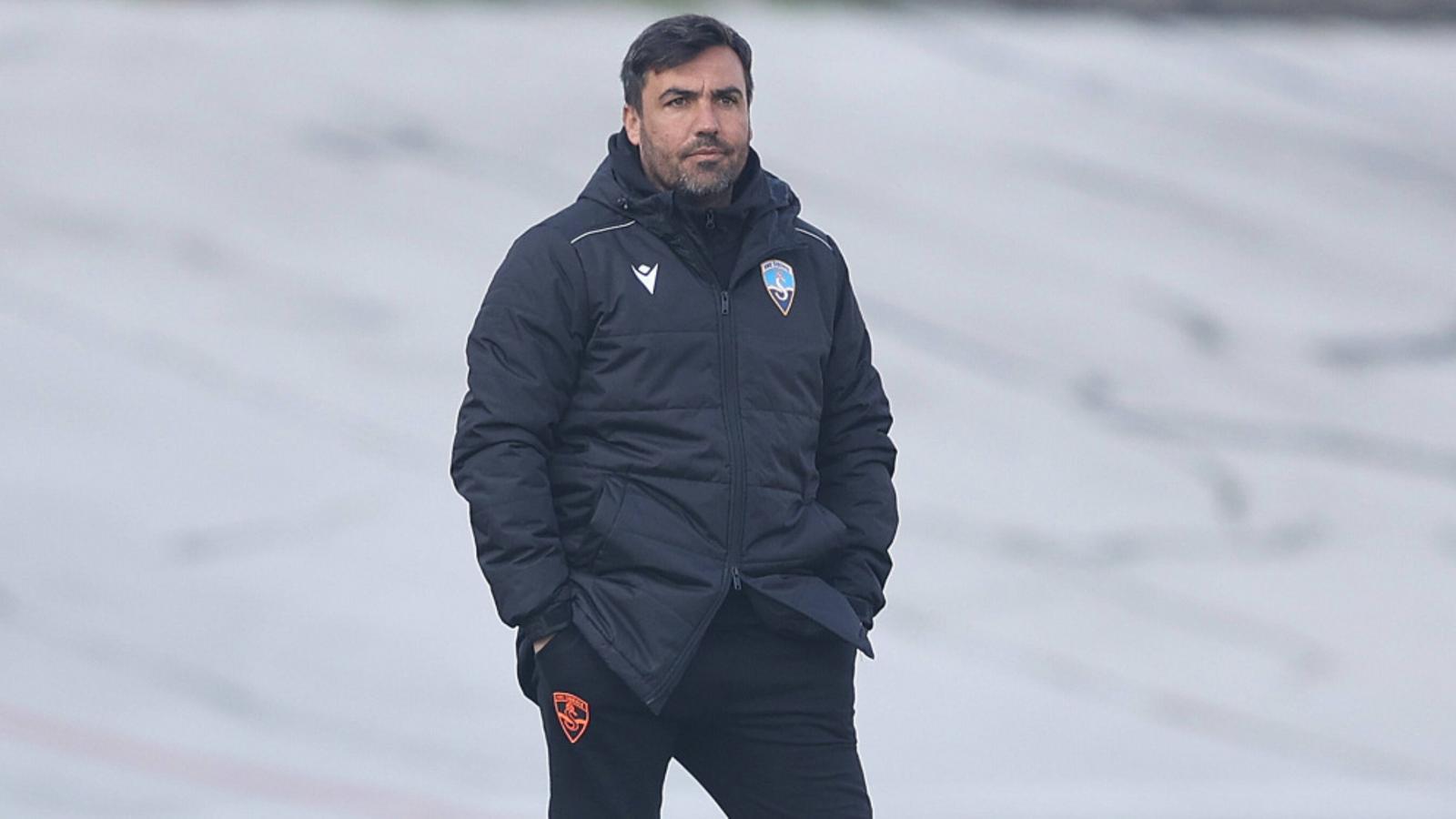The Barça prospect who couldn't be patient: "I would have loved to be the best."
ARA speaks with Mario Rosas, whom Xavi Hernández defines as "the best" of his generation.

TorellóThe newspapers tell his story in the conditional or past tense. "What could have been and wasn't" or "Xavi who couldn't be." "I don't care, all these things. Those around me suffer more. Sometimes at home they ask me if I don't feel sorry. My wife, even my children sometimes, ask me: 'And you don't feel sorry?' Do you think about why? Do they think I didn't want to? That I wouldn't have liked to be what everyone thought I was going to be? "He was the best thing at La Masia. I'll never forget his name. A cross between Messi and Laudrup. "He had everything, but he lost it," said Xavi Hernández, a generation and dream teammate.
They grew up together at Can Barça and arrived at the first team on the same day, as two teenagers. Xavi asked him to go into the locker room together because he was scared to death. He shared a flat with Gabri García, but Xavi often stayed over. From time to time they threw water balloons from the balcony. More than one pedestrian was welcomed. He had arrived at Barça at 12 or 13 years old from a humble neighborhood in Málaga. Sol. He remembers that Andrés Iniesta, for example, cried a lot, tormented by nostalgia: "We all missed our family, our people. But I took it differently. I was very happy at La Masia." But she admits that saying goodbye to her family was bitter: "When they came and went, you'd spend a day, two or three with sad feelings." "When she spoke to me, my mother pretended that everything was fine and nothing was wrong, but it's very hard for a mother to have her son taken away, to not be able to have him around every day. Now I have two and sometimes she asks me if I would let them go. And you think about it a lot." She made the effort because...
When he talks about Barça, he always does so "with love," with a smile. He also talks about May 15, 1998, despite the 4-1 defeat against Salamanca. It is and will be the day of his debut with the first team, just a week before he comes of age. His mother, María Victoria, treasures the number 31 shirt. A few days later, he would be promoted to the Second Division with Barça B, alongside Francesc Arnau, Carles Puyol, and Xavi. He was the player with the most goals, 21, and the most starts, 41 out of 44. The 1999-2000 season saw his debut in the Champions League, also under Louis van Gaal. It was his second game as a Barça player, another milestone on an exciting path. But it would be his last.
In the summer of 2000, twenty-five years ago, he decided to leave Barça: "Leave to come back. That was the idea." "I'd like to leave because we reached the UEFA Cup final against Liverpool, but on an individual level it wasn't so positive." "Seeing what happened, maybe it would have been better for me to have been patient at Barça. Perhaps the situation would have been more similar to what Xavi experienced, who was more patient despite not playing for a while." outside of Barça. "Outside of Barça it's very cold. Not a little cold," he sighs.
In 2001, he said goodbye to the First Division for good after just seven matches and 162 minutes. He would later surpass 200 matches in the Second Division between Salamanca, Cádiz, Castellón, Murcia, Huesca, and Hércules, and also played in Second Division B with Girona (2004-2005). He went from being the great promise of La Masía to falling into the Third Division with a team that sometimes didn't even have the balls to fight. "The side stands were covered with a tarp because they were almost falling," he recalls, happy to see the current Girona side. He also played for a while in Azerbaijan and retired to regional football. "I've experienced all the facets of football," he notes. "In football, there are very few privileged people who have had the good fortune to be at Barça for life, like Puyol or Xavi. The privileged are few. And in working-class football, this happens," he emphasizes while driving to Madrid.
He still often hears people talking about what Mario Rosas could have become if he'd wanted it. "You always want it, but sometimes things don't work out. That's football. If footballers fail or don't live up to expectations, it's not because they don't want it. I'm not saying it's not the player's fault, eh, I'm not saying that my failures, so to speak, weren't a fault—not a fault, but my responsibility. Perhaps that's the most striking thing."
He takes a breath and continues: "I would have loved to be the best, a top-level player, a player who did great things. To be what many people thought I would be and to be what I wanted to be. I tried, maybe I failed. I take all the blame, all the responsibility, but I won't torture myself. Two children and life goes on. It's more of an anecdotal thing that helps you have dinner-table conversations."
